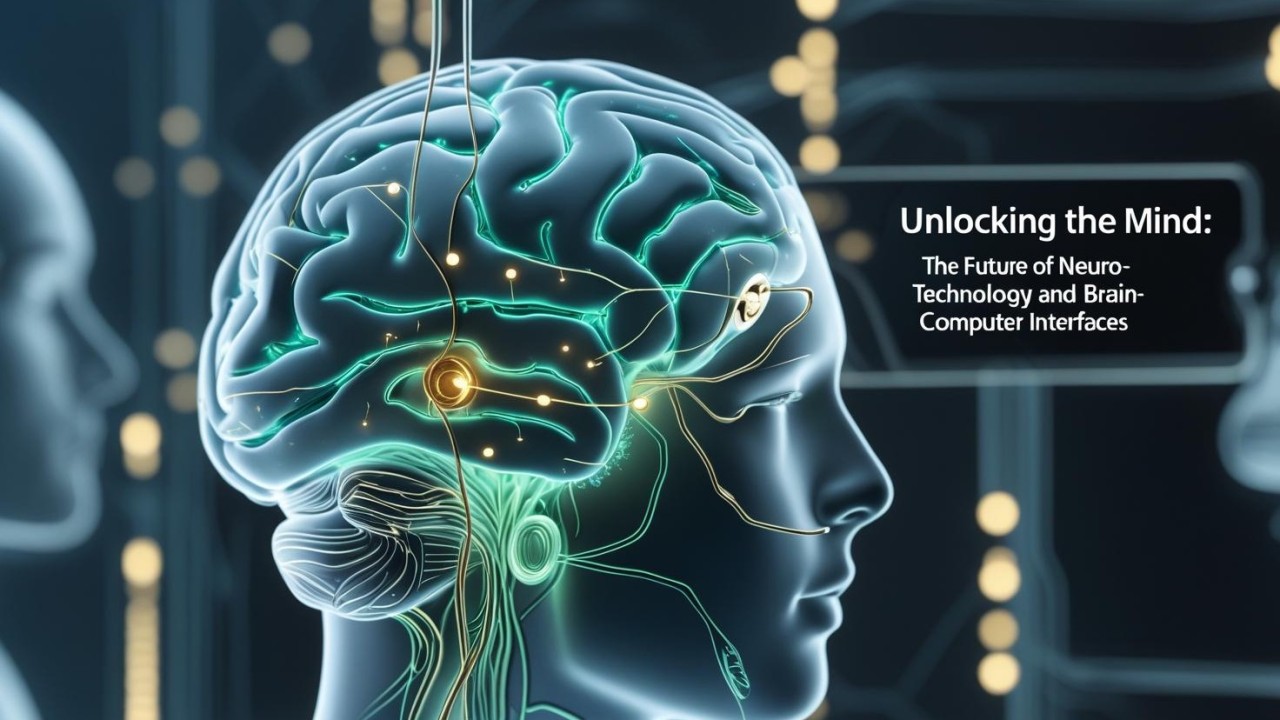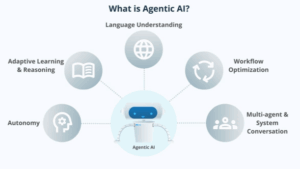Dear Tech Enthusiasts,
In recent years, the realm of neurotechnology has advanced at an unprecedented pace, particularly in the field of brain-computer interfaces (BCIs). These devices, which facilitate direct communication between the brain and external devices, are transforming various sectors, including healthcare, communication, and entertainment. In this edition of the Eagles Tech Digest, we delve into the latest developments in BCIs and their diverse applications.
What Is Neurotechnology?
Neurotechnology involves the use of devices and algorithms to monitor, influence, or emulate the nervous system, particularly the brain. Among its most disruptive branches is the Brain-Computer Interface (BCI)
Understanding Brain-Computer Interfaces (BCIs)
BCIs are systems that enable the brain to communicate with computers or other devices by interpreting brain signals. They can be invasive, involving surgical placement of electrodes, or non-invasive, using external devices to monitor brain activity. These technologies hold immense potential, especially for individuals with disabilities or neurological disorders, paving the way for new forms of interaction and control.
Key Developments in Neurotechnology
- Enhanced Signal Processing: Recent advancements in algorithms and machine learning have improved the accuracy and speed of signal interpretation in BCIs. This progress enables more precise control of devices, making them more user-friendly.
- Miniaturization of Devices: Innovations in materials and chip technology have led to the development of smaller and more efficient BCIs, reducing the surgical footprint and enhancing user comfort.
- Wireless Communication: The evolution of wireless technology has made it possible for BCIs to transmit data without cumbersome wires, allowing for greater freedom of movement, a crucial factor for users.
Applications of BCIs in Health
BCIs are revolutionizing healthcare, particularly in:
- Rehabilitation: BCIs are being used to assist stroke survivors and individuals with spinal cord injuries to regain motor function through neurofeedback and real-time brain signal monitoring.
- Neurological Disorders: Innovation in BCIs is aiding in the treatment of conditions like epilepsy, allowing for real-time monitoring of brain activity and immediate response to seizures.
- Mental Health: Emerging research focuses on using BCIs for mood regulation and mental health treatment, potentially offering new solutions for conditions like depression and anxiety.
Transforming Communication
For individuals with severe disabilities or locked-in syndrome, BCIs are a game-changer, enabling them to communicate more effectively. Systems are being developed where brain signals can control speech-generating devices, translating thoughts into text or speech, thus enhancing autonomy and quality of life.
Entertainment and Gaming
The entertainment industry is also witnessing the impact of BCIs. Developers are creating immersive gaming experiences where players can control in-game actions through thought alone. This not only adds a new layer of engagement but also opens up possibilities for new genres of interactive storytelling.
Ethical Considerations
As with any emerging technology, BCIs raise critical ethical questions regarding privacy, security, and consent. The potential misuse of brain data emphasizes the need for robust regulatory frameworks and ethical guidelines to safeguard users.
Further Reading and Resources
For those interested in diving deeper into the world of neurotechnology and brain-computer interfaces, here are some recommended resources:
Books:
- How to Create a Mind: The Secret of Human Thought Revealed by Ray Kurzweil – A deep dive into AI and the brain’s workings, offering insight into the intersection of neuroscience and technology.
- Neuroergonomics: The Brain at Work by H. Lee Swanson – Explores the application of neuroscience in the workplace and how understanding brain functions can optimize performance.
Research Papers:
- A Survey on Brain-Computer Interface Technology – An overview of current BCI technologies and their applications in different fields. (Available on platforms like IEEE Xplore or Elsevier)
- Ethical Considerations in Brain-Computer Interface Research – Discusses the ethical implications surrounding the use of BCIs in medical and non-medical settings.
Online Courses:
- Coursera: Offers various courses on neuroscience and neurotechnology, including Neuroscience and Introduction to Neuroeconomics.
- edX: Features courses related to BCIs, AI in healthcare, and the neuroethical implications of emerging technologies.
Podcasts:
- Brainwaves by the Society for Neuroscience – A podcast discussing the latest research and developments in neuroscience and neurotechnology.
- Neurotechnology Podcast – Focuses on innovations in neurotechnology, featuring interviews with industry leaders and researchers.
Engagement and Community
We encourage our readers to engage with us and share their experiences or opinions on neurotechnology and brain-computer interfaces. Here are a few questions to ponder and discuss:
- How do you envision BCIs impacting the future of communication for individuals with disabilities?
- What ethical concerns do you believe are most pressing regarding the use of neurotechnology?
- In what ways could BCIs change your personal or professional life?
Join the conversation by commenting below or sharing this newsletter with your network! Let’s build a community that is informed and thoughtful about the technologies shaping our future.
Feedback and Contributions
Your feedback is invaluable to us! If you have any thoughts on this newsletter, suggestions for future topics, or if you are interested in contributing an article or research piece, please reach out to us at [insert email address] or via LinkedIn messages.
Conclusion
The advancements in neurotechnology and brain-computer interfaces are set to redefine the boundaries of human capability, impacting health, communication, and entertainment alike. As we continue to explore these frontiers, it is essential to foster discussions around the ethical implications and ensure that innovations are aligned with societal values.
We invite you to share your thoughts and insights on this topic in the comments below and stay tuned for our next edition, where we will explore another exciting technology shaping our future.
Follow us on LinkedIn and subscribe to our newsletter for more tech insights and updates
Thank you for reading! We appreciate your continued support and engagement with Eagles Tech Digest. Stay curious and informed!
Warm regards,
The Eagles Tech Digest Team




